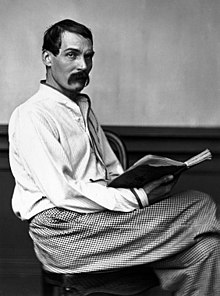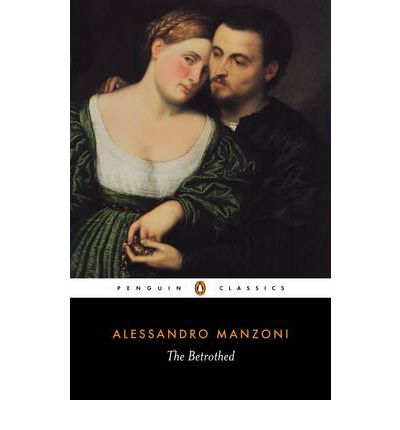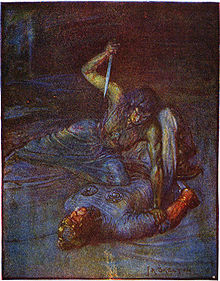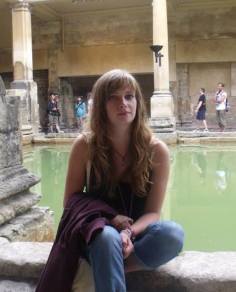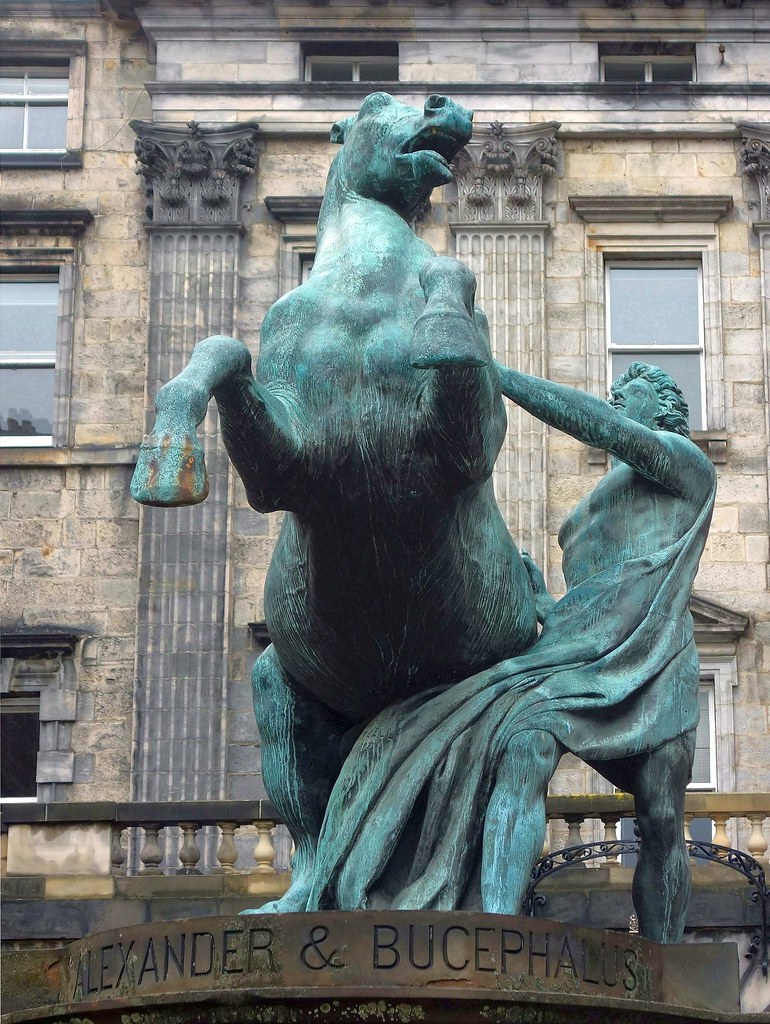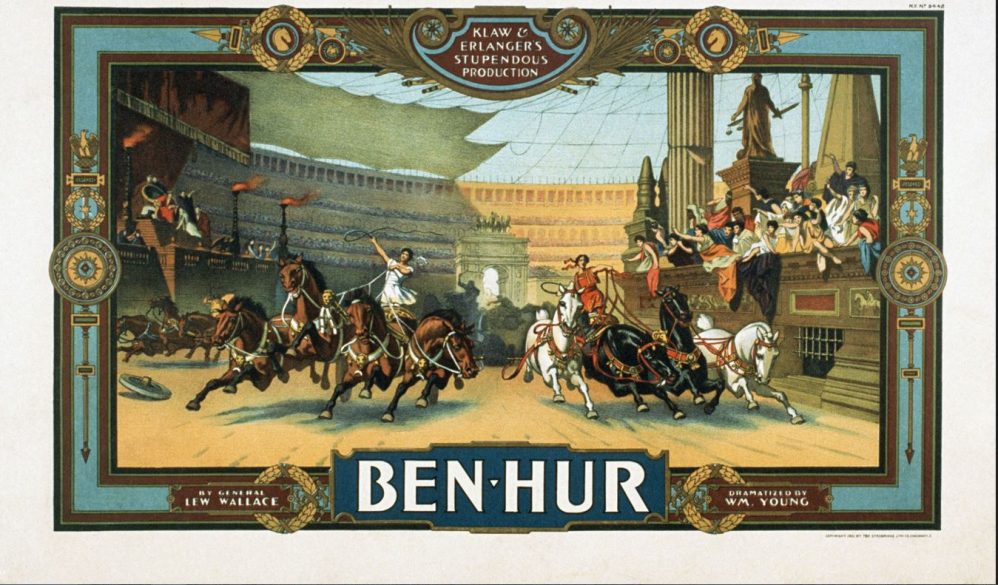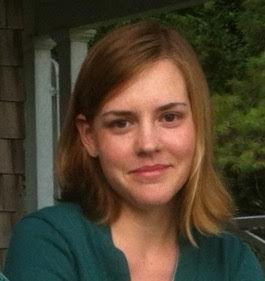Noting that this evening I finished the readings from the 3rd exam of the 6 on my "A" list. I took it up on November 9, 1994 (1st book--Wuthering Heights), so it's taken a few months shy of 25 years to reach the halfway point. I am now on pace to finish it when I am 74, but as I have noted before, the further I go in these exams the more the books, especially the longer ones, start to repeat themselves, so I don't think it will take another 25 years to get to the end. I was on pace before to finish it when I was 78, so I have shaved off a few years in this last cycle.
Are you going to the SJC homecoming next month? It's my 25 year reunion, so I am probably going, indeed I have signed up for it, though various issues could prevent me from making it down. I stopped going to my high school reunions. No one really remembered me, or showed much interest in trying to, and while in my 30s it was at least still a party with attractive women to look at and hope to strike up a conversation with, the last time it was just a bunch of middle aged people who didn't know me, so I don't think there is much of a point in trying to go to them anymore. The St John's people have largely grown away from me as well, but they'll know who I am at least, and I usually enjoy going down and being back in that atmosphere. I have heard it said that the reunions when you are 45-50 are the most lightly attended because that is the age when people are either the busiest or the most disillusioned with their personal results after attending the school, and I am certainly at that point, but still, it was a very important part of my life and I am getting to the age where, although it is not immediately likely, I could be stricken with some affliction that prevents me from ever going back again, so it is likely I will be down.
Friday, August 16, 2019
Wednesday, August 7, 2019
August 2019
A List: Poems
B List: Manzoni--Betrothed...……………………………...361/668
C List: Hoffman--The Marriage of Opposites...…………...218/365
The set of poems I am in the middle of are Burns's "Scots Wha Hae", "Lycidas" (Milton), "Whispers of Immortality" (Eliot), "The Hound of Heaven" (Francis Thompson), and Shelley, "To a Sky-Lark", which I still have to get to.
Burns was great. I have read enough of Milton that his poems mean something to me. With Eliot I have always liked his form and language, the references in this one were a little too outside of my core knowledge to really feel the poem on the initial go. The Thompson started out all right but my attention was wandering by the end. I thought I might be at the point in my life where I could immerse myself in the poetic medium like I once did but I guess I am still too distracted, apart from a poet like Burns who has a very immediate, stirring kind of style.
So this took an extra day and I have been reading over Shelley as well ("Hail to thee, blithe Spirit!"). At one time when I was reading and thinking about these things more intently I decided that Shelley was the most innately talented of the English romantics, I don't remember why, I think it struck me that his thought process seemed to operate the most naturally in the terms of poetic imagery or something. "Skylark" is a meditation on the nature of artistic creation, not wholly devoid of charm or style. Today was for whatever reason a calmer day so I was able (a little) to enter into such of the spirit of 1820 as calls down through the ages.
I've been busy and haven't gotten as far in the Manzoni as I might have liked. It is good while also being different from other great European books of its type in presentation, etc. While I suspect that Renzo and Lucia are going to overcome their presently formidable obstacles and get married in the end, I don't see yet by what clever means the author is going to make this happen, or at least didn't until today, when the most savage and ruthless of the villains yet introduced seemed to undergo a crisis of conscience. Also there are a number of interesting characters whose roles do not require them by the conventions of the Romantic novel to come to a pre-ordained end either good or otherwise, and I am interested in seeing what becomes of them. Hopefully I will be able to finish this and have the report out before the next month is up.
I worried for a while that I might have to take a part-time (2nd) job, which would further cut into my reading, and writing, time, but it looks like I might be able to put that off for this year at least. Joking about cutting into the reading aside, it would also cut into my ability to keep up with the laundry, the dishes, cooking dinner, monitoring my children's schoolwork at all. Maybe it wouldn't be so bad to do this (take a second job) later on, but right now it would be difficult to do.
I've actually given up on The Marriage of Opposites. I was kind of going through the motions anyway because it wasn't grabbing me, and then when the rich, smoldering love interest showed up it basically turned into a Harlequin romance. It checks a lot of the boxes of popular contemporary novels. Strong female white/Jewish protagonist, personally progressive, not as racist as everybody else, best friend is black, etc, conveniently set in colonial times so she can express her indignation with the injustice of it all while her hands are largely tied as far as her ability to overthrow the system. I don't mean to make fun of it, I think most of these contemporary writers are probably sincere in wanting to be good and atone for the crimes of history literary and otherwise, but most of the time it just kind of weighs down the story and puts the characters in straitjackets because of course they have no capacity to surprise. Besides, I think there are like four books still waiting on the C list and at least 3 of them are pretty long, if I were to finish them.
B List: Manzoni--Betrothed...……………………………...361/668
C List: Hoffman--The Marriage of Opposites...…………...218/365
The set of poems I am in the middle of are Burns's "Scots Wha Hae", "Lycidas" (Milton), "Whispers of Immortality" (Eliot), "The Hound of Heaven" (Francis Thompson), and Shelley, "To a Sky-Lark", which I still have to get to.
Burns was great. I have read enough of Milton that his poems mean something to me. With Eliot I have always liked his form and language, the references in this one were a little too outside of my core knowledge to really feel the poem on the initial go. The Thompson started out all right but my attention was wandering by the end. I thought I might be at the point in my life where I could immerse myself in the poetic medium like I once did but I guess I am still too distracted, apart from a poet like Burns who has a very immediate, stirring kind of style.
So this took an extra day and I have been reading over Shelley as well ("Hail to thee, blithe Spirit!"). At one time when I was reading and thinking about these things more intently I decided that Shelley was the most innately talented of the English romantics, I don't remember why, I think it struck me that his thought process seemed to operate the most naturally in the terms of poetic imagery or something. "Skylark" is a meditation on the nature of artistic creation, not wholly devoid of charm or style. Today was for whatever reason a calmer day so I was able (a little) to enter into such of the spirit of 1820 as calls down through the ages.
I've been busy and haven't gotten as far in the Manzoni as I might have liked. It is good while also being different from other great European books of its type in presentation, etc. While I suspect that Renzo and Lucia are going to overcome their presently formidable obstacles and get married in the end, I don't see yet by what clever means the author is going to make this happen, or at least didn't until today, when the most savage and ruthless of the villains yet introduced seemed to undergo a crisis of conscience. Also there are a number of interesting characters whose roles do not require them by the conventions of the Romantic novel to come to a pre-ordained end either good or otherwise, and I am interested in seeing what becomes of them. Hopefully I will be able to finish this and have the report out before the next month is up.
I worried for a while that I might have to take a part-time (2nd) job, which would further cut into my reading, and writing, time, but it looks like I might be able to put that off for this year at least. Joking about cutting into the reading aside, it would also cut into my ability to keep up with the laundry, the dishes, cooking dinner, monitoring my children's schoolwork at all. Maybe it wouldn't be so bad to do this (take a second job) later on, but right now it would be difficult to do.
I've actually given up on The Marriage of Opposites. I was kind of going through the motions anyway because it wasn't grabbing me, and then when the rich, smoldering love interest showed up it basically turned into a Harlequin romance. It checks a lot of the boxes of popular contemporary novels. Strong female white/Jewish protagonist, personally progressive, not as racist as everybody else, best friend is black, etc, conveniently set in colonial times so she can express her indignation with the injustice of it all while her hands are largely tied as far as her ability to overthrow the system. I don't mean to make fun of it, I think most of these contemporary writers are probably sincere in wanting to be good and atone for the crimes of history literary and otherwise, but most of the time it just kind of weighs down the story and puts the characters in straitjackets because of course they have no capacity to surprise. Besides, I think there are like four books still waiting on the C list and at least 3 of them are pretty long, if I were to finish them.
Friday, August 2, 2019
Author List Volume XIX
Richard F Burton (1821-1890) Born: Torquay, Devon, England. Buried: St Mary Magdalene Roman Catholic Church, Mortlake, Richmond, London, England. Capt Sir Richard Francis Burton Museum, 28 Trenwith Place, St. Ives, Cornwall, England. College: Trinity (Oxford)
Haroun Al-Raschid (766-809) Born: Ray, Iran. Buried: Imam Reza Mosque, Mashhad, Iran.
Giafar (767-803)
Douglas Fairbanks (1883-1939) Born: Denver, Colorado. Buried: Hollywood Forever Cemetery, Hollywood, Los Angeles, California.
Elizabeth Madox Roberts (1881-1941) The Time of Man (1926) Born: Perryville, Kentucky. Buried: Cemetery Hill Cemetery, Springville, Kentucky. College: Chicago.
Verner von Heidenstam (1859-1940) The Tree of the Folkungs (1905-7) Born: Olshammar, Sweden. Buried: Ovralid, Motala, Sweden. College: Royal Swedish Academy of Fine Arts.
George du Maurier (1834-1896) Trilby (1894) Born: Paris, Ile, France. Buried: St John-at-Hamspstead Churchyard, Hampstead, London, England.
Kirk Douglas (1916-2020) Born: Kirk Douglas Park, 1 Guy Park Avenue, Amsterdam, Montgomery, New York. College: St. Lawrence. Buried: Pierce Brothers Westwood Memorial Park, Los Angeles, California.
Not an author, but the 2nd person cited in the "Literary Treasures" (other than Herman Wouk, now 103 or 104) who is still alive. (note: as of August, 2019).
Richard Henry Dana, Jr (1815-1882) Two Years Before the Mast (1840) Born: (4 Berkeley Street), Cambridge, Middlesex, Massachusetts. Buried: Campo Cestio Cemetery, Piramide, Rome, Lazio, Italy. College: Harvard
Oliver St. John Gogarty (1878-1957) Born: Rutland Square, Dublin, Ireland. Buried: Cartron Church, Moyard (nr Renvyle), Galway, Ireland. Oliver St. John Gogarty's Pub 58/59 Fleet Street, Dublin, Ireland. College: Trinity (Dublin)
Nora Joyce (1884-1951) Born: Galway Workhouse, Galway, Galway, Ireland. Buried: Fluntern Cemetery, Zurich, Switzerland. Nora Barnacle House, 8 Bowling Green, Galway, Ireland.
Harriet Beecher Stowe (1811-1896) Uncle Tom's Cabin (1852) Born: Litchfield, Connecticut. Buried: Cemetery, Philips Academy, Andover, Essex, Massachusetts. Harriet Beecher Stowe Center, 77 Forest Street, Hartford, Connecticut. Harriet Beecher Stowe House, 2950 Gilbert Avenue, Cincinnati, Ohio. Harriet Beecher Stowe House, 63 Federal Street, Brunswick, Maine.
John Dos Passos (1896-1970) The 42nd Parallel (1930), 1919 (1933), The Big Money (1936) Born: Chicago, Illinois. Buried: Yeocomico Churchyard Cemetery, Cople Parish, Virginia. College: Harvard.
Sir Thomas More (1478-1535) Utopia (1516) Born: Milk Street, City, London, England. Buried: Chapel, St Peter ad Vincula, Tower of London, City, London, England. Head, St Dunstan's Church, Canterbury, Kent, England. College: St Mary Hall (Oxford) or Canterbury (Oxford).
Haroun Al-Raschid (766-809) Born: Ray, Iran. Buried: Imam Reza Mosque, Mashhad, Iran.
Giafar (767-803)
Douglas Fairbanks (1883-1939) Born: Denver, Colorado. Buried: Hollywood Forever Cemetery, Hollywood, Los Angeles, California.
Elizabeth Madox Roberts (1881-1941) The Time of Man (1926) Born: Perryville, Kentucky. Buried: Cemetery Hill Cemetery, Springville, Kentucky. College: Chicago.
Verner von Heidenstam (1859-1940) The Tree of the Folkungs (1905-7) Born: Olshammar, Sweden. Buried: Ovralid, Motala, Sweden. College: Royal Swedish Academy of Fine Arts.
George du Maurier (1834-1896) Trilby (1894) Born: Paris, Ile, France. Buried: St John-at-Hamspstead Churchyard, Hampstead, London, England.
Kirk Douglas (1916-2020) Born: Kirk Douglas Park, 1 Guy Park Avenue, Amsterdam, Montgomery, New York. College: St. Lawrence. Buried: Pierce Brothers Westwood Memorial Park, Los Angeles, California.
Not an author, but the 2nd person cited in the "Literary Treasures" (other than Herman Wouk, now 103 or 104) who is still alive. (note: as of August, 2019).
Richard Henry Dana, Jr (1815-1882) Two Years Before the Mast (1840) Born: (4 Berkeley Street), Cambridge, Middlesex, Massachusetts. Buried: Campo Cestio Cemetery, Piramide, Rome, Lazio, Italy. College: Harvard
Oliver St. John Gogarty (1878-1957) Born: Rutland Square, Dublin, Ireland. Buried: Cartron Church, Moyard (nr Renvyle), Galway, Ireland. Oliver St. John Gogarty's Pub 58/59 Fleet Street, Dublin, Ireland. College: Trinity (Dublin)
Nora Joyce (1884-1951) Born: Galway Workhouse, Galway, Galway, Ireland. Buried: Fluntern Cemetery, Zurich, Switzerland. Nora Barnacle House, 8 Bowling Green, Galway, Ireland.
Harriet Beecher Stowe (1811-1896) Uncle Tom's Cabin (1852) Born: Litchfield, Connecticut. Buried: Cemetery, Philips Academy, Andover, Essex, Massachusetts. Harriet Beecher Stowe Center, 77 Forest Street, Hartford, Connecticut. Harriet Beecher Stowe House, 2950 Gilbert Avenue, Cincinnati, Ohio. Harriet Beecher Stowe House, 63 Federal Street, Brunswick, Maine.
John Dos Passos (1896-1970) The 42nd Parallel (1930), 1919 (1933), The Big Money (1936) Born: Chicago, Illinois. Buried: Yeocomico Churchyard Cemetery, Cople Parish, Virginia. College: Harvard.
Sir Thomas More (1478-1535) Utopia (1516) Born: Milk Street, City, London, England. Buried: Chapel, St Peter ad Vincula, Tower of London, City, London, England. Head, St Dunstan's Church, Canterbury, Kent, England. College: St Mary Hall (Oxford) or Canterbury (Oxford).
Friday, July 5, 2019
July 2019
A List: Noctes Ambrosianae (The Tavern Sages)...………………………...116/172
B List: Alessandro Manzoni--Il Promessi Sposi (The Betrothed)……………16/668
C List: Alice Hoffman--The Marriage of Opposites...….......………………..72/365
The Noctes Ambrosianae are a kind of fictionalized and one suspects, highly embellished, record of the tavern gatherings of the literary world of Edinburgh circa 1822-1830. Although none of the Scottish personalities represented are widely known today, I was familiar with a few of the names, such as John Wilson and John Gibson Lockhart, the author of Adam Blair, a novel I have actually read. The full collection of the Noctes runs to about 20 volumes, so I found an edition that samples some of the greatest hits. I have no doubt that these guys were very witty, talked a mile a minute, and were a howl to get drunk with if you belonged to this society, but most of the time I admit I don't have any idea what exactly they're talking about. In one session for example, I know that they are talking about the shortcomings of the poet Southey, but the extravagance which some of their flights take, along with the allusions to temporary politics, forgotten magazine writers, the quality of the fowl at other establishments and so on, is usually lost on me.
The Betrothed has traditionally been regarded as the greatest Italian novel, certainly of the 19th century and maybe even of all time. I have only read the beginning of it, but it is striking me as something I am going to like.
Alice Hoffman is a contemporary author of more than 30 books. She is a competent writer I guess, but she isn't very funny, and she adheres closely to the pieties of the times. Her book, like the Noctes Ambrosianae, takes place largely in the 1820s (The Betrothed was written in the 1820s, but is actually set in the 1620s), but her heroine doesn't meekly do as she is told, is educated, fierce of spirit, has a black best friend, etc. In a less polite and enlightened age this would be dismissed as a "woman's novel", probably. Look, I know it is hard to write an interesting book, or, goodness knows, an interesting blog post, or tweet, or Facebook update, or comment or anything else. Maybe this book will grow on me. I don't feel quite entitled to put it aside yet on grounds of being indisputably inferior, as a winner of one of my tournaments. And this is the last book of this type on the C-list for a while, there being a string of titles with much more exalted reputations (albeit all written by white males) coming up.
B List: Alessandro Manzoni--Il Promessi Sposi (The Betrothed)……………16/668
C List: Alice Hoffman--The Marriage of Opposites...….......………………..72/365
The Noctes Ambrosianae are a kind of fictionalized and one suspects, highly embellished, record of the tavern gatherings of the literary world of Edinburgh circa 1822-1830. Although none of the Scottish personalities represented are widely known today, I was familiar with a few of the names, such as John Wilson and John Gibson Lockhart, the author of Adam Blair, a novel I have actually read. The full collection of the Noctes runs to about 20 volumes, so I found an edition that samples some of the greatest hits. I have no doubt that these guys were very witty, talked a mile a minute, and were a howl to get drunk with if you belonged to this society, but most of the time I admit I don't have any idea what exactly they're talking about. In one session for example, I know that they are talking about the shortcomings of the poet Southey, but the extravagance which some of their flights take, along with the allusions to temporary politics, forgotten magazine writers, the quality of the fowl at other establishments and so on, is usually lost on me.
The Betrothed has traditionally been regarded as the greatest Italian novel, certainly of the 19th century and maybe even of all time. I have only read the beginning of it, but it is striking me as something I am going to like.
Alice Hoffman is a contemporary author of more than 30 books. She is a competent writer I guess, but she isn't very funny, and she adheres closely to the pieties of the times. Her book, like the Noctes Ambrosianae, takes place largely in the 1820s (The Betrothed was written in the 1820s, but is actually set in the 1620s), but her heroine doesn't meekly do as she is told, is educated, fierce of spirit, has a black best friend, etc. In a less polite and enlightened age this would be dismissed as a "woman's novel", probably. Look, I know it is hard to write an interesting book, or, goodness knows, an interesting blog post, or tweet, or Facebook update, or comment or anything else. Maybe this book will grow on me. I don't feel quite entitled to put it aside yet on grounds of being indisputably inferior, as a winner of one of my tournaments. And this is the last book of this type on the C-list for a while, there being a string of titles with much more exalted reputations (albeit all written by white males) coming up.
Wednesday, July 3, 2019
Beowulf (c. 700)
The night that I finished this reading of Beowulf--I think this is the 4th translation/version of it I have gone through--I had a dream which I am certain was influenced by the poem, albeit translated into the slightly less dramatic environment in which I have passed my life. In the dream I was once again back at my college--while I used to have this dream quite frequently I had not had it in several years and thought maybe that experience had become too remote--it was at lunch on Friday (the mead-hall) and I could not remember my schedule, whether I had one class in the afternoon, or even two. In these dreams I always believe that I have a copy of the schedule somewhere up in my room, which I don't seem to have been in, or organized, or done any work in, the entire year. So I went into the dormitory building (the various caves housing the monsters of the story) and walked up the steps to the third floor, at the landing of which I was blocked by two attractive girls in bathing suits (the terrifying enemies?) who had their backs turned to me as they were engaged in conversation with a studly man who was seated on the top step. While I was hardly annoyed by this holdup, a lifetime of social conditioning compelled me to pretend that I would like nothing more than to remove myself from the presence of all of these beautiful people as quickly as possible, so I murmured an "excuse me" and took great care to maneuver my way around the girls in that narrow space without coming close to touching them, which took some doing. As I passed the cool guy he snapped my underwear--I had not been aware up to that point that I was not wearing pants--and then he took off scampering across a large open shower area in the hallway across to wear the rooms were. I was not loath to chase after him as I was bigger than he was--a change since the dreams of my youth, when I was always physically far inferior to my antagonists--but, perhaps due to subconscious awareness of my true age, I was wary of running across the wet floor (the underwater lair of the serpent?) and slipping, and by the time I got across it my tormentor was out of my reach.
The IWE introduction to Beowulf falls among the ranks of its least enthusiastic entries. "The literary value of Beowulf can be known only to students of Old English; to the modern reader this aspect depends on the translation. But Beowulf is important as folklore and the educated man is supposed to have read it." The IWE frequently recommends books under the premise that the "educated man" is supposed to have read it. As one of the great unfulfilled social goals of my life has been to be generally accepted as belonging to the class of educated people I have always taken especial notice whenever these kinds of assertions are made. Of course as you advance through life you eventually realize there is a lot more to it than checking off a list of books read or earning a high score on some examination of learning. The purpose of education when spoken of in this way is to contribute to the overall mental solidity, or gravitas, of the mature person, and if you don't have this then your education has failed you, or perhaps you have failed it, in its most important point.
This is all apart from the circumstance that of the ideas and cultural touchstones that the Educated Man or Woman or Other of 2019 is supposed to be familiar with, Beowulf is at least not very close, I don't think, to the top of the list, though I can imagine a scenario where you are at a party trying to break in with a crowd of educated people, and you have demonstrated an acceptable familiarity with whatever it exactly is that marks one as potentially a member of this class, and you drop in a sly Beowulf reference and it touches something buried miles deep within then and they like it--well, maybe I can't imagine it exactly.
Going back to the dream, it is remarkable how I still have dreams of being of school, which I attended for 4 fast years more than a quarter of a century ago, yet I have worked now in the same place for 22 years (as of next week) and I don't recall ever having a dream about it, or about any of the people there. Does everyone's mind more or less stop being stimulated and receptive to new impressions after age 25 or so, or just mine?
I am not writing very much about Beowulf itself, I know. As I said, I have read now I think four different versions of it. This particular reading came up at a bad time of year, with everyone, including my wife, being out of school, which necessitated my having to set my alarm for 7:30 am just to try to read a few pages before I had people swarming over me and taking over my day. It usually didn't work. On other occasions I was more able to enter into a more Beowulf mindset, appreciative of its status as the oldest surviving major literary work with a direct relation to the later English nation, feeling a more visceral connection with the fierce, cold, dark, watery lives of the medieval tribes of ancient Scandinavia. One's instinct is to think that Beowulf is a strange story, but it really isn't. Our own time is full of stories like this, of singularly courageous and manly heroes possessed of superhuman abilities battling and defeating monsters of vague origin and motivations. The monsters in Beowulf are in a sense easier to understand, actually, given the relative primitiveness of the times and the tiny populations, short lives, vast distances across inhospitable terrain and ocean to get anywhere, endless dark and frigid winters, regular invasions by violent armies. Making anything out of one's life under such conditions required qualities and fortitude that would be considered heroic were anyone to display them today. We, one would think, should be more culturally sophisticated, and perhaps at the highest levels of science and other places where the smartest people in our times congregate, the law and finance and so on, the intellectual dynamic approaches or even surpasses the Athenian or Roman or 17th century Parisian or 18th century London standard--some infer that it does, though not through art, I would not think--but what do our monsters represent (technology? the increasingly impregnable overclass?) and how is the consumer/intended audience (who presumably identifies with the hero rising up to slay these monsters) supposed to respond/understand his relationship to the story?
The Bourgeois Surrender Challenge
The evolution over the six years that I have hosted this challenge of the Google search algorithms that I use to find the contestants for it has become more antagonistic to my purposes, which was to plug in a bunch of random words and see what random things it turned up. But increasingly it is only giving me a small number of "the most relevant" results, which lean heavily to dry academic papers. Perhaps more of this kind of scholarship has been uploaded to the Internet since I devised this game, and its numbers are now overwhelming the possibilities of quirkier "hits" but I think it more likely that the formulas are trying to guess what I "want" to find, but I don't want to find anything specific, I want to find randomness, which was one of the appealing features of the early days of the internet. I may give Google one more Challenge, as Beowulf-like works generate search words that are especially prone to produce gloomy sword and dragon type results, but if I continue to be disappointed I may try a different search engine and see if I can recapture some of the old magic.
1. Jessica Day George--Dragon Slippers #1...………………………………………………...226
2. M. L. Wang--The Sword of Kaigen…………………………………………………………..55
3. James Canton--The Literature Book: Big Ideas Simply Explained...………………………...44
4. Jorge Luis Borges--A Course on English Literature...……………………………………….20
5. Richard A. Knaak--Legends of the Dragonrealm Volume II...……………………………….18
6. Plutarch--The Age of Alexander...…………………………………………………………….13
7. Muammar Al Gathafi--The Green Book...……………………………………………………12
8. Dana Diehl--Our Dreams Might Align...………………………………………………………6
9. H. A. Guerber--Legends of the Middle Ages...………………………………………………...4
10. Patricia Briggs--Dragon Blood...……………………………………………………………..3
11. The Cambridge Companion to Medieval Romance (ed. Krueger)…………………………...2
12. R. Scot Johns--The Saga of Beowulf Book 1: Land of Death and Shadow...………………...1
13. C. Washington Ives--West Indies...…………………………………………………………..0
14. Richard North--The Origins of Beowulf...……………………………………………………0
15. Linda K. Richter--The Politics of Tourism in Asia...…………………………………………0
16. Beamond Authority--Myths and Legends...….……………………………………………….0
17. John Byrns--Spiritual Fire Starters...……….………………………………………………..0
18. The Reunification of Europe: Anti-Totalitarianism, Courage & Political Renewal...……….0
Qualifying Round
I am going to have the 6 entries scoring zero face off against each other to get a field of 15, with top seed Jessica Day George getting a bye through to the round of 8.
#13 Ives over #18 Reunification of Europe
Neither of these books is readily available. The Reunification of Europe book is a multi-author collaboration, and may even be a textbook.
#14 North over #17 Byrns
#15 Richter over #16 Beamond Authority
I'm not sure that the Beamond Authority thing is even an actual book.
Second Round
#2 Wang over #15 Richter
#3 Canton over #14 North
#4 Borges over #13 Ives
#5 Knaak over #12 Johns
#6 Plutarch over #11 Cambridge
#10 Briggs over #7 Gathafi
There is no way I wanted the former strongman of Libya bowing out in his first match, but he was the victim of an upset.
#9 Guerber over #8 Diehl
The H.A. stands for Helene Adeline. Her book is an oldie (1929) but some of the reference libraries in the state still have a copy of it.
Non-Elite 8
#1 George over #10 Briggs
#2 Wang over #9 Guerber
Wang has an upset to use as well.
#6 Plutarch over #3 Canton
Canton looks to be one of those modern Big Ideas kinds of guys--there is another book that appears to be by him called The Extreme Future: Top Trends That Will Shape the World, etc. The books are fairly similar in size. I have read all of Plutarch's Lives, albeit some years ago now, already, but I went with him anyway because it is easier for me to get a free copy of that book than of the other.
#4 Borges over #5 Knaak
Final Four
#6 Plutarch over #1 George
#4 Borges over #2 Wang
Two of the all time greats versus a couple of (probably) formulaic contemporary children's books? Please.
Championship
#6 Plutarch over #4 Borges
I probably would have picked Borges if any of the libraries I use had had a copy of his book. But none of them do.
Thursday, June 13, 2019
Lew Wallace--Ben-Hur (1880)
So we come to Ben-Hur, a book that I bought a copy of (part of the green and gold spined 20 volume 1930s era "World's Greatest Literature" Series) at a barn sale in 1986 and, especially after I went to college, did not think for a long time that I would ever actually read. But having come to the point a few year's back where I had lost much of my enthusiasm for developing any further in a higher or more future-oriented direction, I came back to some of the unfinished business of childhood years which set me on the road, five and a half years later, to today's post.
As I mentioned in one of my monthly reports, even though I had owned this book for thirty years I had not really noticed how long it was, and if I ever had, I probably wondered if my edition was not abridged, because I always imagined it to be a doorstop type of book. But my edition was only 488 pages, and contained the whole book. The IWE introduction avows that "It is not great literature", but also asserts that "it would be hard to imagine anyone's packing more action into a single volume" The first statement is certainly true, the second is misleading, as if the book were fighting and other forms of physical exertion and struggle from one end to the other, when in fact there are long stretches of wandering and searching and decidedly non-violent episodes from the Bible. It does have a manly energy and thrust to it that compensates for some of its deficiencies, its author having been a general in the Civil War and President Arthur's ambassador to Turkey (joining Hawthorne and Irving, at least, as American authors who served as foreign ambassadors). The IWE, in its upbeat postwar way, refers to Wallace as "a successful Union general", which seems to be putting an extremely positive spin on the matter as he was accused of committing a major blunder at Shiloh, the most significant battle in which he took part, which resulted in a high number of casualties, the castigation of Ulysses S. Grant himself, and the removal from command for almost two years. And even when he returned to active command in 1864, his troops were defeated in the main battle (Monocacy) in which he took part, though he was credited with delaying the rebel force enough to prevent it from attacking Washington.
The book is written in a heavy 19th century style that is difficult to read if one's body has any inclination to go to sleep. Nonetheless I am so far gone in my nostalgic fantasies about the blue skies and epic vistas alike about the ancient world and pre-1960 literature and my own youthful ideas that when I can stay awake and concentrate for any amount of time I really do enjoy it. Manly contention as well as camaraderie among equals, or near enough equals, in strength and spirit, especially against the backdrop of great historical scenes, cities, empires, etc, is always inspiring or is at least a reminder of that feeling when one could believe in it.
As is often the case, I did not take any notes until page 377, then took quite a few over the last 100 or so pages. Sometimes it takes going through almost the whole book to figure out what the questions raised are.
1st note, p.337 "To the purely Christian nature the presentation would have brought the weakness of remorse. Not so with Ben-Hur; his spirit had its emotions from the teachings of the first law-giver, not the last and greatest one. He had dealt punishment, not wrong, to Messala."
p. 351 "As the mind is made intelligent, the capacity of the soul for pure enjoyment is proportionally increased...Wherefore repentance must be something more than mere remorse for sins; it comprehends a change of nature befitting heaven."
If a living priest or some other person in real life were to say these things to me in 90% or more of any such instances I would despise them, I have no doubt. Yet coming across them in the dead pages of a book they, and the belief system that they evidently represent, are soothing.
p. 361 "A country of hills changes but little; where the hills are of rock, it changes not at all."
p. 418 "The Egyptian has him in her net...She has the cunning of her race, with beauty to help her--much beauty, great cunning; but, like her race again, no heart. The daughter who despises her father will bring her husband to grief."
The despised father to boot is Balthasar, of the famous group The Magi. Wallace is an extremely pro-Jewish writer, especially in the religious sense, vis-à-vis almost all of the other nationalities that appear in this book.
p. 419 "A man drowning may be saved; not so a man in love."
p. 424 "In his eyes there were tears which he would not have them see, because he was a man."
Maybe my favorite sentence in the book. Upon Ben-Hur's accepting that his mother and sister are dead, though actually they aren't.
p. 442 "He persisted as men do yet every day in measuring the Christ by himself. How much better if we measured ourselves by the Christ!"
The chariot race is the big action scene in the book as well.
I am about to speak heresy (it is a wicked and godless age), but why do we so easily excuse God/Christ for not immediately overthrowing the Roman power? Modern analytics/efficient practices would suggest that, in the absence of any proof of heaven that would be accepted on Twitter, that would have been a more optimal outcome for humans, though I suppose a worse story. Despite all of the forceful arguments asserting that Jesus Christ, if he ever existed, was the biggest phony in the annals of human history, that belief in supernatural religion is a joke, that spirituality is an invention of the human imagination and has no basis in science and so on, and that this is essentially what almost all genuinely intelligent people in today's world understand to be true, I have never been able to come around to ridiculing the pointless and misguided march of religious, and especially Christian history, which seems to me too important and powerful an--often for good--influence in human culture and psychological makeup to treat so callously. In fact I am admiring and often envious of the truly seriously religious, who seem to me to have a surer sense of who they are than all but the most intellectually invulnerable materialists, whose conception of the nature of the world within which they have found satisfaction is as yet too intricate for me to follow.
According to Wallace's autobiography, he was raised in the Christian tradition but wasn't a devout follower, and he does not appear to have been a member of any church. There are claims on the internet that he was an atheist who wrote Ben-Hur to disprove Christianity, which does not appear to be true, and which I do not believe anyway. Ben-Hur did almost to the last hour cling to the belief that Christ would either lead or inspire in the Jewish people a successful earthly rebellion against the Roman Empire, and he expressed more disappointment about this even after he realized to some extent what Jesus was doing than I would have expected, but the point was not to illustrate that Christianity was wrong so much as that it was difficult to comprehend and to live by.
p. 447 "The idea, old as the oldest of peoples, that beauty is the reward of the hero had never such realism as she contrived for his pleasure..." The evil, tempting, exotic "other" Egyptian again.
To further comment on my thought above, I wrote "the humbling of Ben-Hur's worldly ambitions something of a surprise ending to me. It is more emphasized than in the film.
p. 477 "The sun was rising rapidly to noon; the hills bared their brown breasts lovingly to it..." At the crucifixion, which I thought was effectively described as a physical ordeal. Perhaps the soldier's sense at work?
The final paragraph of the book is a brief personal note from the author which I found warming. Most of these writers never address the reader so directly.
"If any of my readers visiting Rome, will make the short journey to the Catacomb of San Calixto, which is more ancient than that of San Sebastiano, he will see what became of the fortune of Ben-Hur, and give him thanks. Out of that vast tomb Christianity issued to supersede the Caesars."
The Challenge
1. David Mitchell--Cloud Atlas..................................................................…..2,317
2. Edward Gibbon--Decline and Fall of the Roman Empire........................…..746
3. Simon Sebag Montefiore--Jerusalem: The Biography...……..................…..422
4. John Julius Norwich--Sicily: An Island at the Crossroads of History...…….111
5. David Graeber--Bullshit Jobs........................................................................…71
6. Margot Lee Shetterly--Hidden Figures (children's book edition)......….……..66
7. Bodie & Brock Thoene--Eighth Shepherd........................................................64
8. Robert Audi--Cambridge Dictionary of Philosophy....................................….36
9. Bill Myers--Devoted Heart...........................................................................….20
10. Teyla Branton--Insight.................................................................................…17
11. G. J. Whyte-Melville--The Gladiators............................................................10
12. Monica Selveira Cyreno--Big Screen Rome...………………………………...7
13. Matthew S. Hedstrom--The Rise of Liberal Religions.................................….5
14. Alexa Person--The Zero Point.....................................................................….5
15. Georg Ebers--Serapis...……………………………………………………….2
16. Works of Lucian of Samosata...……………………………………………….2
Round of 16
#1 Mitchell over #16 Lucian
Lucian is worthy of some respect, his works being part of the Loeb classical series in eight volumes. Eight volumes is lot to overcome against any literary competition in this game, however.
#2 Gibbon over #15 Ebers
Gibbon is one of the last of the inner circle pre-1900 English language classics that I have never read. Its massive length is going to work against it in this format also. I know that I am going to get to it on my "A"-list at some point in the next 10-20 years, so I don't feel the pressure to read it sooner rather than later tightening around me yet.
#3 Montefiore over #14 Person
#4 Norwich over #13 Hedstrom
Hedstrom has no library presence, cannot compete.
#5 Graeber over #12 Cyreno
Big Screen Rome sounds like it might be an interesting book, but no one has it, and the Graeber book, despite its ungenteel and mildly abrasive title, is not one I can eliminate immediately on the basis of near certain dislike.
#6 Shetterly over #11 Whyte-Melville
The Shetterly is a children's picture book edition of the recent adult best-seller and mild sensation--perhaps that would have been a better entry in the tournament, but it was not the one that made it. Whyte-Melville's book, not available in any libraries, looks like another densely written, highly moralized triple decker Victorian novel with a Roman setting, just like Ben-Hur. While I don't mind one of these kinds of books on occasion, there are enough of them sitting on the IWE list that I don't need to add any additional ones for my "free reading".
#7 Thoene over #10 Branton
#8 Audi over #9 Myers
There is not much use for dictionaries on this kind of list, but the Myers book is, for the purposes of this list, a meatball, not being in libraries, being a genre book that does not appear to be published by an outlet with any stature, and thus cannot realistically defeat anything with the Cambridge imprimatur.
All the higher seeds win in the 1st round. The field was lopsided.
Elite 8
#1 Mitchell over #8 Audi
#2 Gibbon over #7 Thoene
If Gibbon keeps drawing red state American Christian novelists, he may triumph in this contest after all.
#3 Montefiore over #6 Shetterly
#4 Norwich over #5 Graeber
Norwich's Sicily book is reasonable in length, and its 29 extra pages over Graeber's are not enough to make us consider the upset.
Final Four
#1 Mitchell over #4 Norwich
Norwich would actually have won this based on shorter length, but Mitchell has the only upset to play in this entire tournament.
#3 Montefiore over #2 Gibbon
Even the Montefiore book is 650 pages. Gibbon proves a tough out in his 1st Challenge appearance.
Championship
#1 Mitchell over #3 Montefiore
Another pretty long book (509 pages) added to the wait list, but the shorter entries need to come through quality-wise. Also Mitchell is about my age and enjoyed the kind of literary success and critical adulation, at that time anyway--maybe he still does, or does any novelist really have that kind of status for life anymore?-- that I used to imagine must be my eventual lot, so looking into his book will be a kind of reckoning for me.
Thursday, June 6, 2019
June 2019
A List: between books
B List: between books
C List: Perlstein--Invisible Bridge...………………………….530/810
For the A list I am actually trying to translate a few pages of The Republic. When I began this list 25 years ago there was a provision, the idea being that I would eventually learn all of the major European literary languages, that specially excerpted passages within the test would be subjected to a second reading in the original language of the author. As is often the case, after starting out I'll say all right, I have gotten weary and am just plowing through the phrases and tenses that are completely unrecognizable to me. In Greek my remembered vocabulary just is not big enough at this point to do a passable job on this, I have to look up almost every other word, and I never mastered all of the little enclitics and other small common words. Yet since I did once study it and still have all of the lexicons and grammars, I feel obligated whenever it comes up to go through the motions of trying to read it. I also do this for (in declining order of reading competence) French, German, Norwegian/Swedish, Italian, Latin, and Spanish books that come up. I have given up trying to read anything in Russian and Hebrew, in which tongues I have no foundation whatsoever, nor any Asian language that may chance to come up--a handful of Chinese and Arabic poems have appeared on the list. It is admittedly for the most part a pointless exercise.
I am working on my next report for the B-list.
There is still some interesting stuff in the Perlstein but I'm not sure it needs to be as long as it is. There is a real book in there, and perhaps this is a matter of where the author's true understanding or expertise lies, but a good deal of the information thrown at the reader in this book seems tangential and doesn't hit the mark. One thing I am stunned by in recent pages was how inept security was at the highest levels of government in 1975 compared to how fanatical and thorough everyone with anything to protect is about it now. While having two potential gun-toting assassins get within point blank range of Gerald Ford, who was the president at the time, within the span of a couple of weeks, is crazy enough, my favorite story is the one about how the presidential limousine crashed into a teenager driving a Buick at an intersection in Connecticut because the Secret Service people "forgot to close the road off." People's brains were evidently not focused on extreme policing, at least in everyday life, in that era. It doesn't seem now like such a terribly hard thing to get a grasp on.
I am a little distracted right now because I have two old cars, both of which should be replaced but I am going to try to get away with replacing just one at the moment. As somebody on the internet might say, and in fact just said today, perhaps I should worry about doing something to stand up to the United States government in the name of all the people it is continually raining death on and keeping in disgraceful poverty around the world instead of thinking about acquiring another environment-destroying machine to transport unconscionable quantities of meat around in. Can you imagine what everyone would say if I suddenly stopped being me and became an impassioned activist?
B List: between books
C List: Perlstein--Invisible Bridge...………………………….530/810
For the A list I am actually trying to translate a few pages of The Republic. When I began this list 25 years ago there was a provision, the idea being that I would eventually learn all of the major European literary languages, that specially excerpted passages within the test would be subjected to a second reading in the original language of the author. As is often the case, after starting out I'll say all right, I have gotten weary and am just plowing through the phrases and tenses that are completely unrecognizable to me. In Greek my remembered vocabulary just is not big enough at this point to do a passable job on this, I have to look up almost every other word, and I never mastered all of the little enclitics and other small common words. Yet since I did once study it and still have all of the lexicons and grammars, I feel obligated whenever it comes up to go through the motions of trying to read it. I also do this for (in declining order of reading competence) French, German, Norwegian/Swedish, Italian, Latin, and Spanish books that come up. I have given up trying to read anything in Russian and Hebrew, in which tongues I have no foundation whatsoever, nor any Asian language that may chance to come up--a handful of Chinese and Arabic poems have appeared on the list. It is admittedly for the most part a pointless exercise.
I am working on my next report for the B-list.
There is still some interesting stuff in the Perlstein but I'm not sure it needs to be as long as it is. There is a real book in there, and perhaps this is a matter of where the author's true understanding or expertise lies, but a good deal of the information thrown at the reader in this book seems tangential and doesn't hit the mark. One thing I am stunned by in recent pages was how inept security was at the highest levels of government in 1975 compared to how fanatical and thorough everyone with anything to protect is about it now. While having two potential gun-toting assassins get within point blank range of Gerald Ford, who was the president at the time, within the span of a couple of weeks, is crazy enough, my favorite story is the one about how the presidential limousine crashed into a teenager driving a Buick at an intersection in Connecticut because the Secret Service people "forgot to close the road off." People's brains were evidently not focused on extreme policing, at least in everyday life, in that era. It doesn't seem now like such a terribly hard thing to get a grasp on.
I am a little distracted right now because I have two old cars, both of which should be replaced but I am going to try to get away with replacing just one at the moment. As somebody on the internet might say, and in fact just said today, perhaps I should worry about doing something to stand up to the United States government in the name of all the people it is continually raining death on and keeping in disgraceful poverty around the world instead of thinking about acquiring another environment-destroying machine to transport unconscionable quantities of meat around in. Can you imagine what everyone would say if I suddenly stopped being me and became an impassioned activist?
I haven't been overseas in 18 years. I would like to go somewhere. Nice and the Riviera, I have got into my mind as being a good trip. Crowded, but I've never been there and there is plenty to do. I spent half an hour trying to find a picture but I couldn't find quite the thing I wanted so I am giving up.
Subscribe to:
Posts (Atom)







